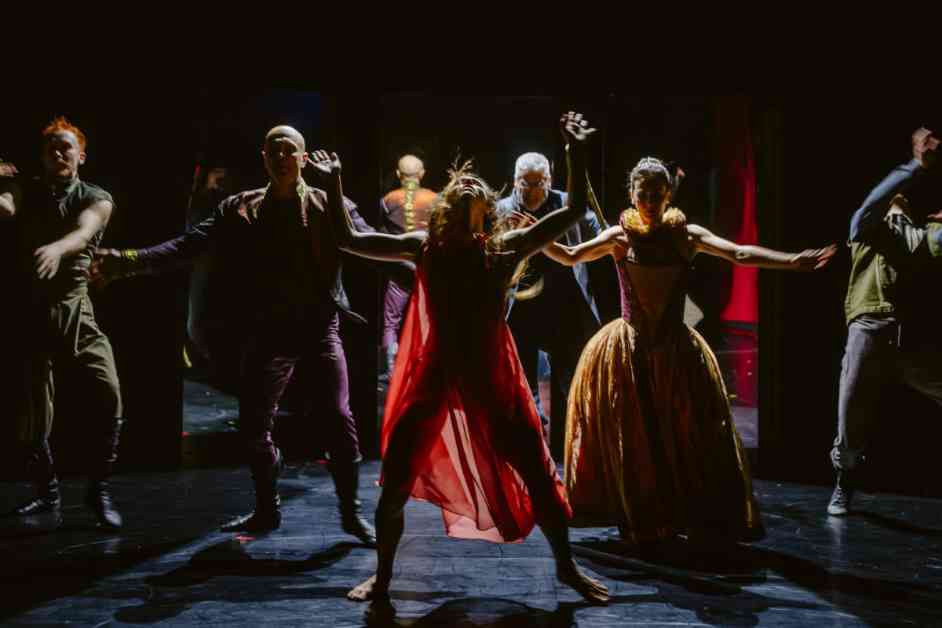Shakespeare’s iconic play “Hamlet” has been reimagined in various innovative ways in Chicago in 2024. From Eddie Izzard’s one-person interpretation to Red Theater’s stripped-down version, audiences have had the opportunity to experience new perspectives on this classic tragedy. Now, French Canadian director Robert Lepage brings his unique vision to the stage with “The Tragedy of Hamlet: Prince of Denmark,” a production that challenges traditional storytelling.
Collaborating with choreographer Guillaume Côté, who also performs the title role, Lepage’s production premiered in Toronto before making its U.S. debut at the Harris Theater in Chicago. Known for his groundbreaking work in theater, film, opera, and circus, Lepage’s approach to “Hamlet” without using any text is a bold and innovative choice.
During a phone conversation, Lepage shared his experience of working on this production and how it evolved from a project during the COVID-19 pandemic shutdown. The use of dance as a storytelling medium allowed Lepage and Côté to explore the dynamics of the original play in a new way. By incorporating classical, contemporary, and street dance elements, the production created a rich tapestry of characters and themes that resonate with audiences.
Lepage’s focus on the central theme of action versus inaction in “Hamlet” is brought to life through dance, offering a fresh perspective on the character’s internal struggles. The production has received positive feedback and continues to evolve with each performance, staying true to the essence of Shakespeare’s story while presenting it in a visually compelling way.
In a time where political tensions are high, Lepage sees the resurgence of new interpretations of “Hamlet” as a reflection of the current climate. The timeless themes of power, ambition, and morality explored in the play resonate with contemporary audiences, making it a relevant and thought-provoking piece of theater.
Overall, Lepage’s innovative approach to “Hamlet” demonstrates the enduring power of Shakespeare’s work to inspire creativity and push boundaries in the world of performing arts. By stripping away the words and focusing on the physicality of dance, Lepage invites audiences to experience the story of “Hamlet” in a fresh and captivating way that transcends language barriers and cultural differences.


